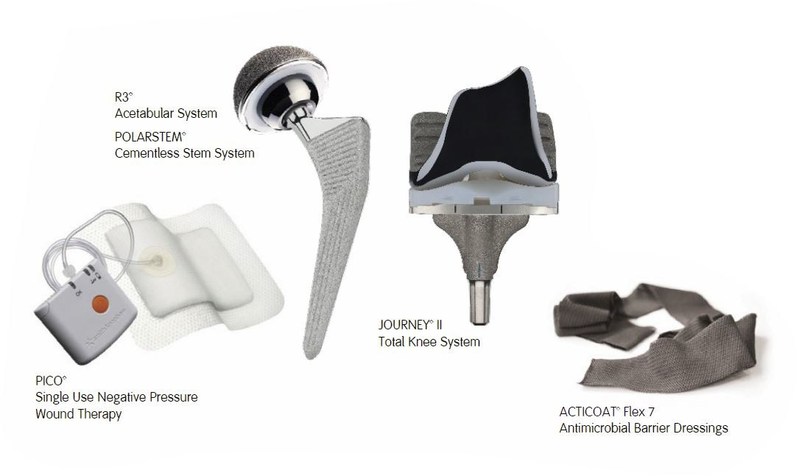Smith & Nephew, the global medical technology business, today announces results showing a 97.3 percent decrease in readmission rates for joint arthroplasties (TJA) conducted under its Episode of Care Assurance Program (eCAP).

Episode of Care Assurance Program (eCAP) (Credit: Smith & Nephew)
Working with Provider PPI, eCAP combines Smith & Nephew’s leading hip and knee implants with its PICO™ Negative Pressure Wound Therapy and ACTICOAT Flex 7 Antimicrobial Barrier Dressings. These products are applied post-surgery; PICO may help protect the incision by reducing seroma and hematoma fluid collections, reducing edema and lateral tension and improving perfusion.1-5 ACTICOAT Flex 7, which contains Nanocrystalline Silver, provides an effective barrier to microbial contamination to help deter surgical site infections.6
Over the past 14 months 1,380 TJAs have been conducted under the eCAP program with only two readmissions, a readmission rate of only 0.145% as compared to published rates of 5.3% or more.7
“As healthcare systems move from fee for service to pay for value, healthcare providers are increasingly responsible for the episode of care for the patient,” said Glenn Warner, President Smith & Nephew US. “eCAP can help enable providers to reduce costly readmissions after TJA by adding class-leading wound care products to help manage surgical incisions. We are proud to support our customers with innovative programs that deliver improved care in a large-scale, real-world setting.”
Smith & Nephew worked with Provider PPI, a group purchasing organization, to implement this program at Provider PPI’s client facilities in late 2016 with positive results, and is now serving 16 facilities across the US.
“Adding PICO and ACTICOAT products from Smith & Nephew to our TJA cases has been a great win for our health system clients and their patients,” said Paul Gallagher, Vice President, Provider PPI. “I am extremely pleased to see our readmission rate drop to nearly zero. In Smith & Nephew we’ve worked with a comprehensive product solutions partner that’s willing to stand behind its product portfolio.”




